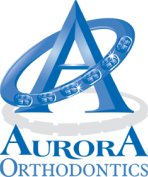FAQ
We understand you may have questions before your first visit with us – not to worry! Please consult our FAQ. If you have any additional questions, don’t hesitate to contact us and we’ll be more than happy to help!


Frequently Asked Questions
Do I need to be referred to your office?
No, you do not. You may want to discuss your concerns with your general dentist first, but you can call or e-mail our office directly to schedule an initial consultation appointment.
At what age should I schedule an appointment for an orthodontic screening?
The American Association of Orthodontists recommends an orthodontic screening at age 7. By this age, several permanent teeth in most children have erupted, allowing us to effectively evaluate your orthodontic condition.
Will my teeth straighten out as they grow?
No, they will not. The space available for the front teeth does not increase as you grow. In most people, after the permanent molars erupt, the space available for the front teeth decreases with age.
How do I schedule an appointment for an initial exam?
If you or your child can potentially benefit from orthodontic treatment, simply call our office, send us an e-mail, or fill out our contact form online. We will be happy to schedule an appointment for you. When you call to schedule your appointment, our front office staff will request some basic information from you.
What will happen at the initial consultation appointment?
Upon arriving, you will be greeted by our Treatment Coordinator, who will acclimate you to our office. We will take the necessary photographs and X-rays to allow us to make a proper diagnosis. Dr. Shojaei will then complete a comprehensive orthodontic examination.
What will I learn from the initial examination?
There are five essential questions that we will cover during the initial examination
- Is there an orthodontic problem, and if so, what is it?
- What are the options to correct the problem?
- Is there a possibility that teeth need to be removed?
- Approximately how long will the treatment take to complete?
- What is the fee range for this specific type of treatment?
Will I need to have teeth extracted for braces?
Removing teeth is sometimes required to achieve the best orthodontic result. Straight teeth and a balanced facial profile are the goal of orthodontics. Long term health of the teeth, gums and supporting structures may require removal of permanent teeth.
How long will it take to complete treatment?
Treatment time depends on each patient’s specific orthodontic problem. In general, treatment times range from 12 to 30 months. The “average” time a person is in braces is approximately 24 months.
How much will my treatment cost? Are financing options available? How does my insurance work?
It is impossible to give an exact cost for treatment until we have completed an orthodontic examination. After reviewing your X-rays and performing the exam, our team will provide you with your cost of treatment. We offer flexible, interest free financing options to accommodate your needs.
How often will I need to be seen for appointments?
Appointments are scheduled according to each patient’s needs. Most patients in braces will be seen every 6-8 weeks. If there are specific situations that require more frequent monitoring, we will schedule appointments accordingly.
Do braces hurt?
Generally, braces do not “hurt.” After certain visits, teeth may be sore for a few days. In these situations, pain medications such as Advil or Tylenol will ease the discomfort. However, after most visits, patients do not feel any soreness at all!
Do you give needles?
No. Needles are not necessary in orthodontic treatment.
Can I still play sports?
Yes. We recommend a mouth guard for all sports.
Do I need to see my family dentist while in braces?
Yes! Regular checkups with your family dentist are important while in braces. Your family dentist will determine the intervals between cleaning appointments while you are in braces.
Are there foods I cannot eat while I have braces?
Yes. Once treatment begins, we will explain the complete instructions and provide a comprehensive list of foods to avoid. Some of those foods include ice, hard candy, raw vegetables, and all sticky foods (i.e., caramel and taffy). You can avoid most emergency appointments to repair broken or damaged braces by carefully following our instructions.
How often should I brush my teeth while in braces?
Patients should brush their teeth at least three times each day – after breakfast, after dinner, and before going to bed. We will also teach each patient how to floss their teeth with braces which should be performed once a day.
What do I do if I feel discomfort or if I notice something is loose or broken?
If your braces are causing extreme pain or if something breaks, you should call our office. In most cases, we can address these issues over the telephone. If you require an emergency appointment, we will set aside time for you.
Can orthodontic correction occur while a child has baby teeth?
Yes. Some orthodontic problems are significant enough to require early intervention. However, if a patient is not yet ready for treatment, we will follow that patient’s growth and dental development until the appropriate time for treatment.
What is Phase One (Early) treatment?
Phase One treatment, if necessary, is usually initiated on children between the ages of 7 and 10. Phase One treatment lasts about 12-16 months. The primary objective for Phase One treatment is to address significant problems to prevent them from becoming more severe and to improve self-esteem and self-image.
Will my child need full braces if he/she has Phase One treatment?
It is best to assume that your child will need full braces even after Phase One treatment. The period following Phase One treatment is called the “resting period,” during which growth and tooth eruption are closely monitored. Throughout this period, parents and patients will be kept informed of future treatment recommendations.
Will my child need an expander?
At the completion of the initial examination, we will determine whether a patient will need an expander.
Is it too late to have braces if I am already an adult?
A surprising percentage of our patients are adults. In fact, 25 percent of all orthodontic patients are adults. Health, happiness and self-esteem are vitally important to adults. No patient is “too old” to wear braces!
Can I wear braces even though I have crowns and missing teeth?
Yes. A tooth with a crown will move just like a tooth with a simple filling. When teeth are missing, orthodontic treatment will aid in the alignment of the remaining teeth.
Why should I choose an orthodontic specialist?
Teeth, and sometimes entire facial structures, are permanently changed by orthodontic treatment. It is important that the treatment be appropriate and properly completed. Orthodontic specialists have extensive and specialized training that enables them to provide their patients with professional, personalized treatments.

